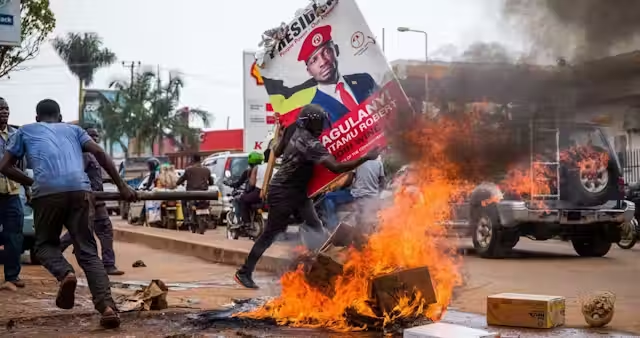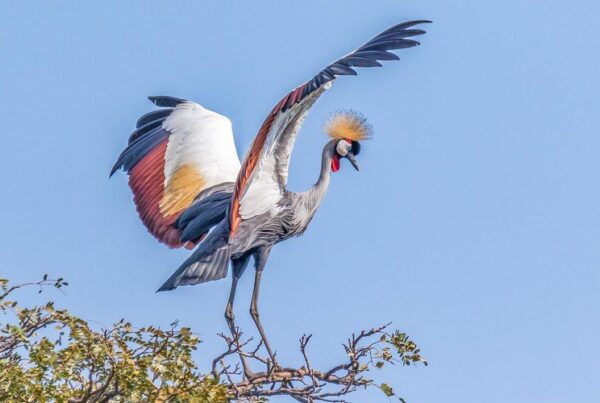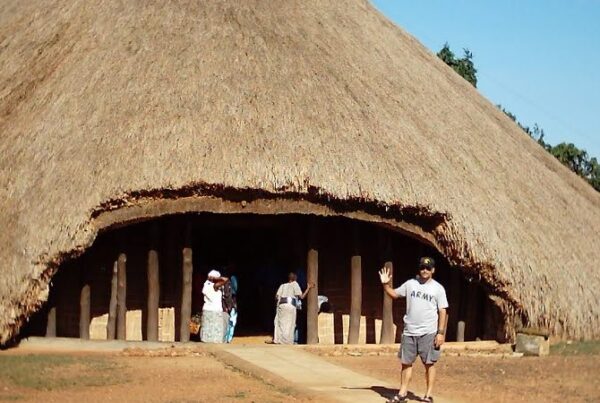Is It Safe to Visit Uganda During the Elections?
Unveiling the Truth Behind Travel and Democracy in the Pearl of Africa
Every few years, Uganda enters a period of heightened anticipation, reflection, and national introspection—its general elections. For travelers considering a visit during this politically significant time, a question naturally arises: Is it safe to visit Uganda during the elections? The answer, while layered with nuances, invites a closer look into the country’s political climate, cultural resilience, and the operational integrity of its tourism sector.
Uganda, known as the Pearl of Africa, boasts a magnetic charm that draws visitors to its lush landscapes, rare wildlife, and welcoming people. From the misty mountains of Bwindi to the thunderous beauty of Murchison Falls, the country offers a journey like no other. But as ballots are cast and political discourse intensifies, travelers must assess whether adventure and civic activity can coexist in harmony.
The truth lies not in alarmist headlines or simplistic assumptions, but in understanding the nature of Ugandan elections, the behavior of its institutions, and the lived realities of its people during these critical moments. This guide explores the safety of traveling to Uganda during elections with depth, honesty, and a commitment to clarity.
Understanding the Political Pulse of Uganda
The Republic of Uganda has held regular elections since the mid-1990s, following years of political instability and armed struggle. Under the stewardship of President Yoweri Museveni, who came to power in 1986, the country has experienced relative political continuity, albeit not without contention. Elections in Uganda are often spirited, highly publicized, and closely watched—both domestically and internationally.
Campaigns are usually marked by large rallies, media appearances, and mobilization at the grassroots level. Political parties—including the ruling National Resistance Movement (NRM) and opposition groups such as the National Unity Platform (NUP) and Forum for Democratic Change (FDC)—engage in robust competition. This political dynamism, while reflective of democratic progress, has at times led to tension in certain urban centers, particularly during presidential election years.
The Electoral Commission of Uganda, the institution responsible for organizing the elections, operates under constitutional mandate. While its impartiality has occasionally been questioned, it functions within a clearly defined legal framework. Observers from both African and international bodies are often present during elections to monitor transparency and fairness.
To understand the risks or lack thereof, it is essential to differentiate perceived threats from actual events and to recognize that not all parts of the country experience the same level of political activity or unrest.
Localized Disruptions Versus Nationwide Safety
During election periods, particularly within a week before and after the vote, Uganda may experience isolated incidents of unrest, most often concentrated in major cities such as Kampala, Jinja, Gulu, and Mbarara. These disruptions typically involve spontaneous protests, increased security presence, and traffic restrictions. However, such events are usually limited in scope and duration.
Rural areas and national parks—the backbone of Uganda’s tourism sector—remain largely unaffected. Travelers who choose to venture into safari destinations or cultural heritage sites during election seasons often find that these locations maintain their normal rhythm. Game drives, mountain gorilla treks, boat cruises, and community visits typically proceed as scheduled, even when political campaigns are in full swing.
The tourism sector in Uganda has demonstrated a remarkable level of resilience and adaptability. Tour operators, lodge owners, and transport providers are well-versed in navigating the political calendar and routinely make contingency plans to ensure visitor safety and comfort.
The Role of Security Forces and Public Order
A common feature of Ugandan elections is the visible deployment of security forces, including police, military, and specialized units. This presence is intended to prevent violence, deter criminal activity, and respond swiftly to potential disturbances. While such visibility might appear alarming to unfamiliar eyes, it does not necessarily signify imminent danger.
The state security apparatus operates under the directives of the Electoral Commission and the Ministry of Internal Affairs. Roadblocks, identity checks, and controlled movement in certain areas are standard procedures during election week, especially in the capital. Travelers are generally not targeted but are advised to cooperate with authorities, carry proper identification, and avoid politically charged gatherings.
Importantly, incidents involving foreign tourists during Ugandan elections are exceedingly rare. The Uganda Tourism Police, a unit specifically tasked with protecting visitors, operates across all regions and works closely with local tour operators. Coordination between tourism stakeholders and government bodies is robust, ensuring that visitors receive timely updates and assistance when needed.
Internet Blackouts, Communication, and Infrastructure
One of the unique challenges faced during past Ugandan elections has been the temporary shutdown of internet and social media platforms, particularly around election day and during the release of results. These actions, while controversial, are usually taken under the pretext of maintaining national security and preventing the spread of misinformation.
For travelers, such blackouts can be inconvenient but are rarely disruptive to physical movement or safety. Tour operators often resort to alternative means of communication such as satellite phones, local radio, or in-person coordination. Hotels, lodges, and tour drivers maintain internal communication systems to ensure smooth operations during these periods.
Despite temporary internet restrictions, telecommunication networks and banking services remain functional, especially in urban areas. ATMs, mobile money, and credit card facilities continue to operate, though carrying some local currency in cash form is always prudent during travel.
The Cultural Climate and Social Atmosphere
One of the most rewarding aspects of visiting Uganda—during elections or otherwise—is engaging with its vibrant communities. Ugandans are known for their hospitality, warmth, and openness, even during periods of political uncertainty. The average citizen is proud to share insights about the electoral process, traditions, and history, provided such discussions are approached respectfully.
Travelers may encounter political slogans, songs, campaign parades, and painted buildings showcasing party colors. These expressions should be seen as a celebration of democratic participation, not as warning signs. That said, foreigners are advised to observe rather than participate, refraining from expressing political opinions or affiliating with any side.
Democracy in Uganda, while evolving, is deeply tied to cultural identity. Visitors who travel with sensitivity and curiosity often find themselves welcomed into homes, marketplaces, and cultural gatherings—even during intense political periods.
Natural Attractions Unshaken by Politics
Uganda’s most iconic tourism experiences—gorilla tracking in Bwindi, chimpanzee treks in Kibale, and safaris in Queen Elizabeth or Kidepo National Park—remain operational during election seasons. These destinations are situated far from political hotspots and are managed by professional rangers and private concessionaires who prioritize visitor safety above all else.
The Uganda Wildlife Authority (UWA) maintains full operations during elections, and permits for trekking or park entry are issued without interruption. Roads to these destinations may be monitored by police but are rarely restricted unless a national emergency is declared.
The election season, particularly from January to March, also coincides with dry weather, making it one of the best times to explore the country’s stunning landscapes, birdlife, and adventure activities. The rivers flow steadily, the skies remain clear, and wildlife is easier to spot around water sources.
Planning and Traveling Responsibly
Traveling to Uganda during an election period should be done with informed caution, not fear. With the right guidance, visitors can enjoy the full spectrum of Uganda’s natural and cultural heritage while remaining insulated from the more sensitive aspects of political activity.
Reputable tour companies monitor developments closely and build flexibility into their itineraries. Local guides are equipped to reroute or reschedule plans in real time to avoid congestion or disturbances. It is advisable to share travel plans with your tour operator, remain reachable, and allow room for schedule adjustments.
The experience of witnessing a nation in civic motion—casting votes, debating ideas, and shaping leadership—is deeply human. For those willing to travel with awareness and humility, the rewards can be transformative.
Explore Uganda Confidently With WildHorn Africa
When navigating Uganda during such a pivotal period, one must travel not just with wonder, but with wisdom. This is why experienced, locally rooted operators are essential. WildHorn Africa, a leading tour and safari company, stands out for its professionalism, real-time adaptability, and deep understanding of Uganda’s dynamic environment.
Whether your journey leads to the mountain gorillas of Bwindi, the roaring Nile at Murchison Falls, or the cultural heartbeat of Buganda, WildHorn Africa ensures every aspect of your trip is seamless and safe—even during elections. With tailored itineraries, vetted accommodations, and expert local guides, your travel experience is not just protected—it is elevated.
Let Uganda astonish you—not just through its landscapes, but through the resilience and richness of its people. Book your journey with WildHorn Africa and discover the Pearl of Africa through eyes wide open and hearts well guided.









